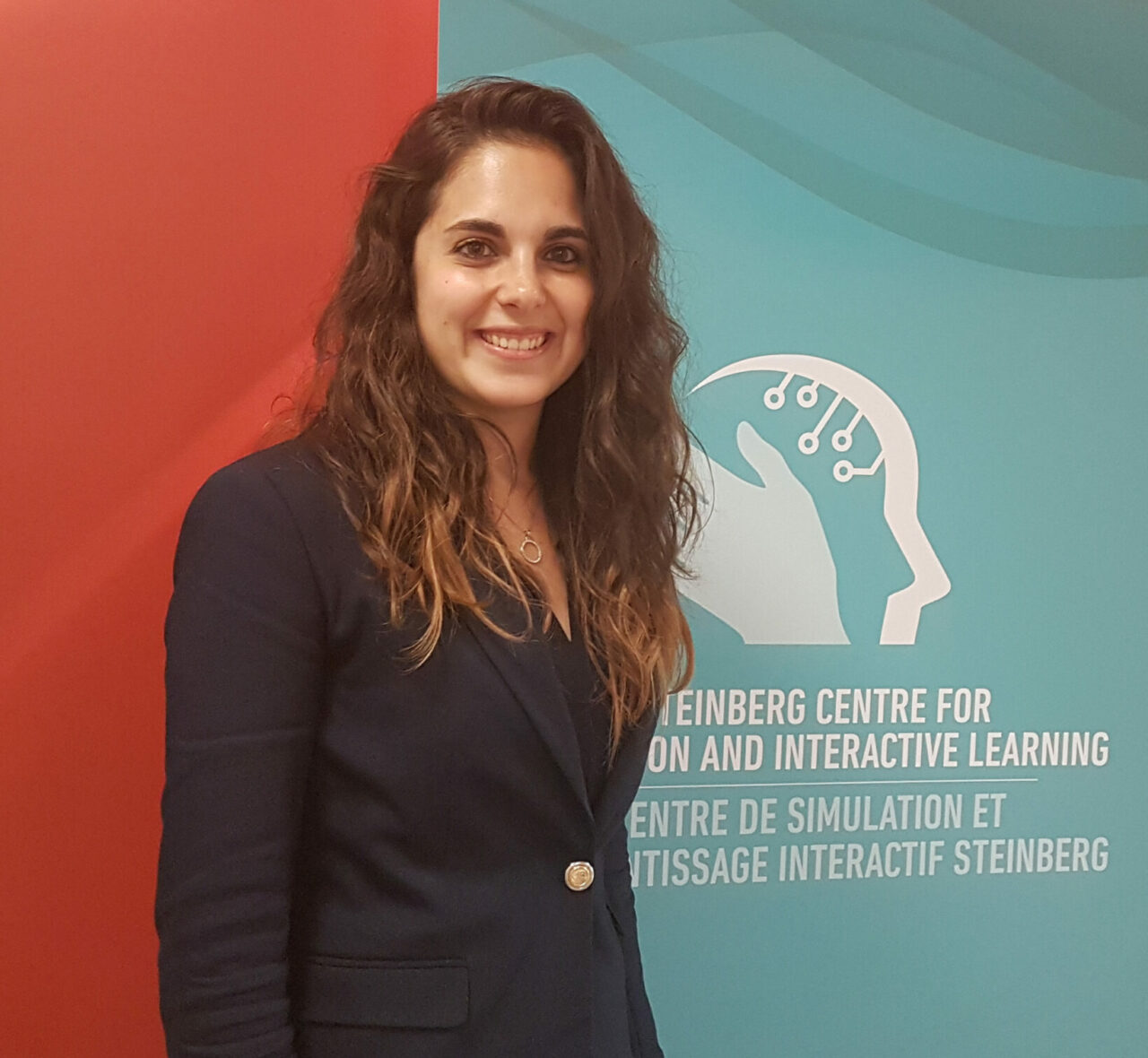Early in her journey towards becoming a physician, Dr. Milena Garofalo recognized a need to integrate more simulation-based training in the Obstetrics and Gynecology Residency Program at McGill University. Her keen interest in simulation and education research led her to take a sabbatical from residency in order to complete a Master’s Degree in Experimental Surgery with a focus on Surgical Education. Over the past year, Dr. Garofalo has devoted her studies to the research, practice and theory of learning and teaching in the health care professions, a subject that she is very passionate about.
Working with Dr. Rajesh Aggarwal, former director of the Steinberg Centre for Simulation and Interactive Learning, Dr. Garofalo recently completed a literature review which compared national obstetrics and gynaecology curricula and integration of competency-based medical education (CBME) in five countries–Australia, Canada, the Netherlands, the United Kingdom, and the United States. The ultimate goal for all residency programs is to ensure a skilled, competent physician, capable of independent practice by the end of his or her training. In spite of variations in the different programs’ length, structure and content, the review of curricula of these five countries led to a similar conclusion: even though curricula reviewed have, or will be, integrating CBME into their residency program, there is a need to develop adequate assessment tools, including simulation, to train competent physicians capable of independent practice. Standardization of curricula may lead to a decrease in the variability and an increase in the quality of training, allowing for measurements and comparisons across centres. For more information regarding this study, please refer to the paper which was published in the July 2017 edition of the Journal of Obstetrics and Gyneacology of Canada [LINK: http://www.jogc.com/article/S1701-2163(16)39868-1/abstract]
August 9, 2017

